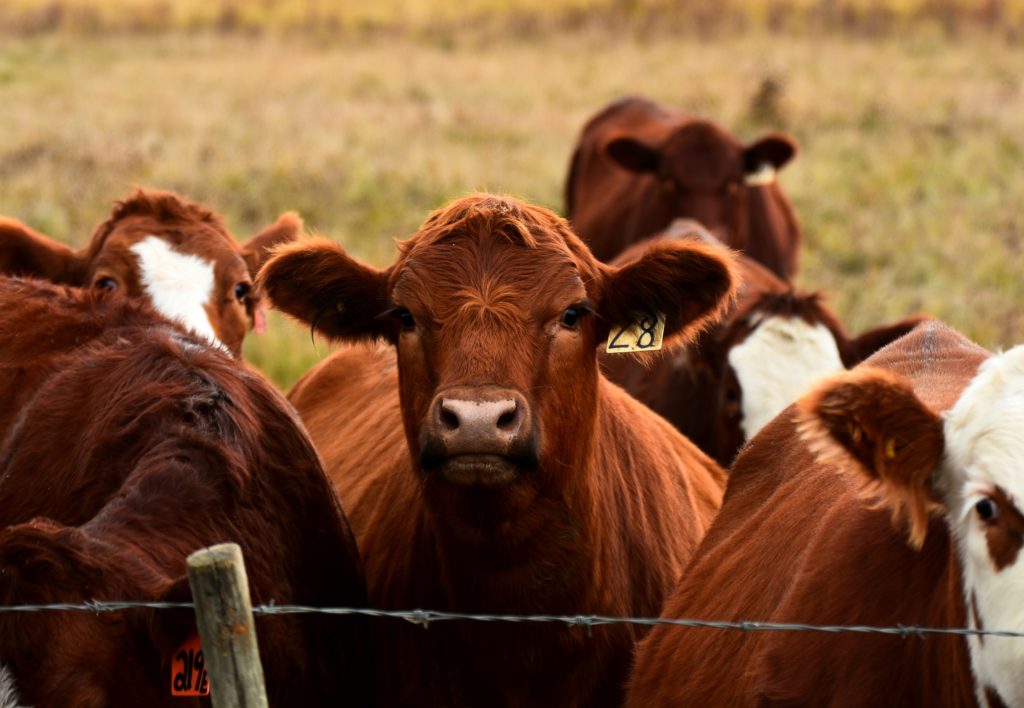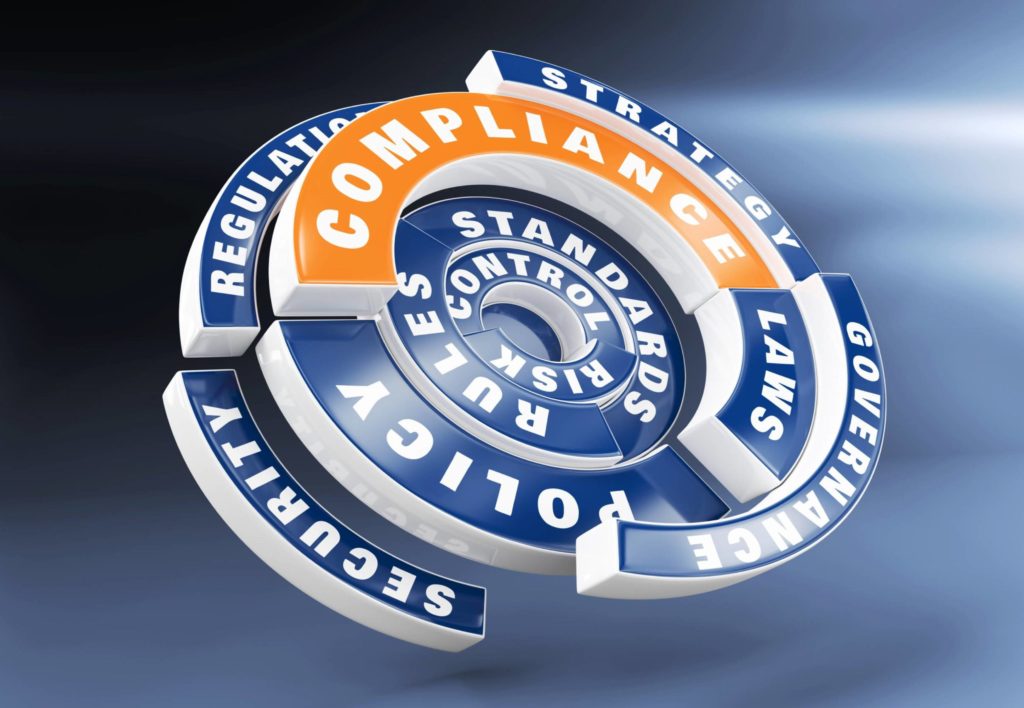Importing Animal Feeds and Pet Foods
Importing Animal and Pet Foods
Importing Animal and Pet Foods
The Federal Food, Drug, and Cosmetic (FD&C) Act defines food as “articles used for food or drink for man or other animals…” Therefore, any article that is intended to be used as an animal food ingredient, to become part of an ingredient or food, or added to an animal's drinking water is considered a “food” and thus, is subject to regulation.
Animal feeds and pet foods imported into the United States must be composed entirely of ingredients judged acceptable for use in such products. The FDA’s regulation of pet food is similar to that for other animal foods. The regulation requires that all animal foods, like human foods, be safe to eat, produced under sanitary conditions, contain no harmful substances, and be truthfully labeled. In addition, canned pet foods must be processed in conformance with the low acid canned food regulations to ensure the pet food is free of viable microorganisms.
In-Depth Coverage: Importing Food Products
- What is FDA Food Safety Modernization Act (FSMA)?
- Prior Notice of Imported Foods
- FDA Food Facility Registration
- Risk-Based Preventive Controls for Human Food
- Risk-Based Preventive Control for Animal Food
- Protect Food against Intentional Adulteration
- What is Foreign Supplier Verification Program (FSVP)?
- What is FSMA Produce Safety Rule?
Although there is no pre-market approval for animal feed or pet foods, their ingredients must be either approved food additives, generally recognized as safe (GRAS), or the subject of an ingredient definition published in the Official Publication (OP) of the Association of American Feed Control Officials (AAFCO), the most comprehensive list of ingredients acceptable for use in animal feed. Animal food ingredients include all component parts of an animal food, its constituents, or any combination, or mixture thereof, added to, and comprising, the food.
“GRAS” is an acronym for the phrase Generally Recognized As Safe. Any substance that is intentionally added to food is a food additive, that is subject to premarket review and approval by FDA, unless the substance is generally recognized, among qualified experts, as having been adequately shown to be safe under the conditions of its intended use, or unless the use of the substance is otherwise excluded from the definition of a food additive.
Numerous herbs have not been approved for use in animal food in the US, and it is incorrect to assume GRAS substances approved for use in human food are also acceptable and safe for use in animal food.
While FDA's Center for Food Safety and Applied Nutrition is responsible for the regulation of human food products, FDA's Center for Veterinary Medicine (CVM) is responsible for the regulation of animal food (feed) products. There is no “dietary supplement” regulatory classification for animal food substances and products. For more information please referred to Current Animal Food GRAS Notices Inventory
In-Depth Coverage: USDA-Regulated Products
- Importing USDA-Regulated Food Products
- Import Regulation by USDA Agricultural Marketing Service (AMS)
- Food Products – FDA or USDA Regulated
- Country of Origin Labeling
- Importing Animals, Animal Products, and Biologics into the US
- Importing Meat, Poultry, and Egg Products into the US
- Labeling and Marking of Imported Meat, Poultry, and Egg Products
- USDA National Organic Program (NOP)
- Agricultural Safeguards and USDA Licensing
Food Facility Registration and Prior Notice
Imported food/feed is subject to the requirements of The Public Health Security and Bioterrorism Preparedness and Response Act of 2002 (the Bioterrorism Act). This Act requires the registration of food/feed producing facilities with the FDA, and for providing “prior notice” for each shipment of imported food before arrival in the U.S.
If you are the owner, operator, or agent in charge of either a domestic or foreign facility that is engaged in manufacturing/processing, packing, or holding of food for human or animal consumption in the United States, you must register with FDA, unless you are exempt from the requirement to register.
When must you register initially under the food facility registration requirements?
If you are required to register with FDA, you must register before your facility begins manufacturing/processing, packing, or holding operations. The FD&C Act requires facilities that are required to register with the FDA to renew their registrations every other year, during the period beginning on October 1 and ending on December 31 of each even-numbered year.
What information is required in the registration of a food facility?
The following information is required for domestic and foreign food facility registrations:
- Facility name, address, phone number, and emergency contact phone number;
- Preferred mailing address, if different from that of the facility;
- Parent company name, address, and phone number (if the facility is a subsidiary of the parent company);
- All trade names the facility uses;
- Name, address, and phone number of the owner, operator, or agent in charge;
- Email address of the owner, operator, or agent in charge, unless FDA has granted a waiver under 21 CFR 1.245;
- Applicable food product categories of any food manufactured/processed, packed, or held at the facility, as identified on Form FDA 3537;
- The type(s) of activity at the facility for each food product category, as provided in 21 CFR 1.232(a)(8);
- A statement in which the owner, operator, or agent in charge provides an assurance that FDA will be permitted to inspect the facility at the times and in the manner permitted by the FD&C Act;
- A statement in which the owner, operator, or agent in charge certifies that the information submitted is true and accurate. If the individual submitting the form is not the owner, operator, or agent in charge of the facility, the registration must also include a statement in which the individual certifies that the information submitted is true and accurate, certifies that he/she is authorized to submit the registration, and identifies by name, address, and telephone number, the individual who authorized submission of the registration. In addition, the registration must identify the individual who authorized submission of the registration by email address, unless the FDA has granted a waiver under 21 CFR 1.245.
In addition, beginning October 1, 2020, the facility’s UFI recognized as acceptable by FDA will be required to be submitted with the registration information (21 CFR 1.232(a)(2)). Each registration submission must include the name of the individual submitting the registration. For the paper option, the registration must also include the individual’s signature (see 21 CFR 1.230).
For a foreign facility, the registration must also include:
- The name, full address, phone number, and email address of the foreign facility’s U.S. agent;
- An emergency contact phone number and email address.
Animal feed and Pet food imported or offered for import into the U.S. require Prior Notice
If the article that is shipped to the U.S. is food within the meaning of the law, then Prior Notice generally is required, even if the item is intended for further processing, is not intended for consumption in the U.S., or is not intended for commercial distribution.
Prior Notice is required for all food for humans and other animals that is imported or offered for import into the U.S. for use, storage, or distribution in the U.S., including food for gifts and trade and quality assurance/quality control samples, food for transshipment through the U.S. to another country, food for future export, and food for use in a U.S. Foreign Trade Zone.
Please note that:
- Every entry item that has a separate FDA product code requires a separate Prior Notice.
- Every entry item from separate facilities requires a separate Prior Notice.
- Every entry item for separate consignees on a consolidated entry requires a separate Prior Notice.
Riske-based Preventive Control for Animal Food – Food Safety Plan
The Food Safety Modernization act (FSMA) requires animal food facilities to create and implement a food safety plan.
The FSMA rule requires covered food facilities to have a written food safety plan that includes a hazard analysis and preventive controls. In general, you are a covered facility if you are required to register with FDA under section 415 of the Federal Food, Drug, and Cosmetic (FD&C) Act. Section 415 of the FD&C Act requires domestic and foreign facilities that manufacture, process, pack, or hold food for human or animal consumption in the United States to register with FDA.
In the first part of the plan, the facilities assess potential food safety hazards associated with their animal food (this is called “hazard analysis”). In the second part, the facilities take steps, when necessary, to reduce or eliminate identified food safety hazards (these steps are called “preventive controls”).
The above FSMA requirements apply to companies that must register as an animal food facility because they manufacture, process, pack, or hold animal food for consumption in the United States.
Besides having to follow the requirements under FSMA, registered animal food facilities must also comply with current good manufacturing practices (unless an exemption applies). These practices provide baseline standards for manufacturing, processing, packing, and holding animal food to ensure it’s safe for animals to eat.
In-Depth Coverage: Marketing and Advertising Compliance
- Federal Trade Commission (FTC) Advertising Rules
- Made in USA Standard
- FTC Regulation on Environmental Claims
- Adverting and Marketing on the Internet
- Label Claims for Conventional Foods and Dietary Supplements
- Dietary Supplement Advertising: What is FTC's Truth-in-Advertising Law?
- USDA Country of Origin Labeling (COOL)
- FTC Rules & Regulations on Food Advertisement
Labeling and Claims
An animal food label should contain information describing the product and any details necessary for the safe and effective use of the food. The federal regulations concerning the labeling of animal foods are published in 21 CFR 501. The FD&C Act defines “labeling” as all labels and other written, printed or graphic matter upon any article or any of its containers or wrappers, or accompanying such articles. The courts have interpreted labeling to include promotional brochures, promotional pamphlets, testimonials, product information sheets, books, Internet, etc.
In addition to meeting the federal labeling requirements, animal food products are also subject to individual state laws. Under many State regulations, an animal food label must include the following information:
- Brand Name, if any,
- Product Name;
- Purpose Statement;
- Guaranteed Analysis;
- List of Ingredients;
- Directions for Use;
- Warning or Caution Statements;
- Name and Address of Manufacturer; and
- Quantity Statement.
Many of these regulations are based on a model provided by the Association of American Feed Control Officials (AAFCO).
Under the FD&C Act, expressed or implied claims that establish the intended use is to cure, treat, prevent or mitigate disease, or affect the structure or function of the body in a manner other than food (nutrition, aroma, or taste), can identify an intent to offer the product as a “new animal drug.” Unless the “new animal drug” product has been shown to be safe and effective for its intended use via approval of a New Animal Drug Application, it could be subject to regulatory action as an adulterated drug. Further, CVM has incorporated the philosophy of the Nutrition Labeling Education Act in its policies to permit meaningful “health” information on the label of some animal food products. For example, the use of “urinary tract health,” “hairball control,” and “dental health” claims on cat food diets fall under this policy. Animal food manufacturers provide substantiation that the desired statement(s) is (are) truthful and not misleading. CVM's review and acceptance of the claim are needed before the claim is utilized on product labeling. For more information please refer to Pet Food Labels – General
Pet Food Labeling
Pet food labeling is regulated at two levels. The federal regulations, enforced by the FDA, establish standards applicable for all animal feeds: proper identification of product, net quantity statement, manufacturer's name and address, and proper listing of ingredients. Some states also enforce their own labeling regulations. Many states have adopted the model pet food regulations established by the Association of American Feed Control Officials (AAFCO). These regulations are more specific in nature, covering aspects of labeling such as the product name, the guaranteed analysis, the nutritional adequacy statement, feeding directions, and calorie statements.
USDA Permits and Certifications
Animal foods and feeds that include plant and animal by-products not suitable for human consumption may require a permit or certification through the U.S. Department of Agriculture (USDA). These include dairy products and meat products (like meat meal and bone meal) from countries with livestock diseases exotic to the United States, such as Bovine Spongiform Encephalopathy (BSE), commonly known as “Mad Cow Disease.”
Animal and Plant Health Inspection Service (APHIS) of USDA issues permits for the import, transit and release of regulated animals, animal products, veterinary biologics, plants, plant products, pests, organisms, soil, and genetically engineered organisms. For more information please refer to USDA Animal Product Manual
Guidance on customs & logistics solution for traditional and e-commerce importers and exporters
Customs Clearance
All goods imported into the U.S. are required to be declared to CBP. Our customs broker will help you stay in compliance with customs laws and regulations and clear your goods quickly and efficiently with our electronic Automated Commercial Environment (ACE) and Automated Broker Interface (ABI) Single Window System.
Warehousing & Distribution
Our warehouse facility offers great potential for serving as a regional hub with over 145,000 SF storage capacity close to Los Angeles Airport & Los Angeles/Long Beach Sea port. With our extensive experience in freight services, your import/export cargo will be handled quickly and effectively.
Freight Forwarding
Looking for a freight forwarding partner? To move your cargo from its current location through customs to its final destination we will partner with you to find the best way for your business. Whatever your transportation, logistics or customs clearance needs, we will do our best to customize a solution for your needs.
E-Commerce
The Internet has made it easy to find and purchase items from almost anywhere in the world. Our e-commerce experts will help you find the right solution for your international transportation, customs clearance, and delivery to your final destination. We also provide value-added repackaging, warehousing and distribution services.
Section 321 Entry
Section 321 entry allows importing free of duty and tax for shipments imported by one person on one day having a fair retail value in the country of shipment not more than $800. We provide our resident and non-resident clients with dedicated ACE eManifest solutions for Section 321 entry of all modes of transportation.
Non-resident Importer Program
If you want to sell your products in U.S. marketplaces, but you are a business owner located outside of the U.S., and do not have an entity or physical presence in the U.S., you need to be established as a Foreign Importer of Record before your goods can be imported into the U.S. We can help you.
Importer Security Filing (ISF)
An ISF is required when cargo (ocean only) laden on vessel at a foreign port is destined for shipment to the U.S. Under ISF rule, some importing information and details regarding cargo must be transmitted to the CBP at least 24 hours before goods are loaded onto the vessel.
Quick Link To U.S. Customs & Import Requirements
Customs Clearance and Import Requirements
- Entry of Imported Merchandise
- What is Section 321 Entry?
- What is Automated Commercial Environment (ACE)
- What is an Automated Broker Interface (ABI)?
- Who is Ultimate Consignee?
- What is Non-Resident Importer Program?
- Country of Origin of Imported Merchandise
- What is the Country of Assembly?
- What if the FDA's Country of Manufacture?
- Marking of Country of Origin on U.S. Imports
- What is Customs Bond?
- Reconciliation Prototype and Bond Rider
- Who Needs a Customs Broker?
- What is Customs Ruling Program?
- Classification of Imported Goods
- How is imported merchandise appraised?
- What are Import Quotas?
- What are Trade Remedy Duties?
- Antidumping Duty (AD) and Countervailing Duty (CVD)
- What is Foreign Trade Zone (FTZ)?
- What is Importer Security Filing (ISF)?
- What is Temporary Importation under Bond (TIB)
- What is In-Bond Process?
FDA-Regulated Products and Import Requirements
- What is Food Safety Modernization Act (FSMA)?
- Prior Notice of Imported Foods
- Food Facility Registration
- Risk-Based Preventive Controls for Human Food
- Risk-Based Preventive Control for Animal Food
- Standards for the Growing, Harvesting, Packing, and Holding of Produce for Human Consumption
- What is Foreign Supplier Verification Program (FSVP)?
- Protect Food against Intentional Adulteration
- FDA Regulated Product in Foreign Trade Zone (FTZ)
- Entry Review Process for FDA Regulated Products
- Country of Origin VS Country of Manufacture
- Foods Regulated by FDA or USDA: What is the Difference?
- Label and Labeling Claims for Conventional Food and Dietary Supplements
- What is USDA Country of Origin Labeling (COOL)?
- Import for Export of FDA Regulated Products
- FDA Regulated Products in Personal Baggage or Sending by Mail or Courier
- International Mail Facility (IMF) and FDA Regulation
- Importing Biological Product Regulated by CBER
- Importing Cosmetics and Voluntary Cosmetic Registration Program (VCRP)
- Importing Drugs into the U.S.
- Importing OTC Drugs into the U.S.
- Importing Veterinary Drugs into the U.S.
- Importing Tobacco Products into the U.S.
- Importing Medical Devices into the U.S
- Importing Food Products into he U.S.
- Importing Radiation-Emitting Products into the U.S.






















